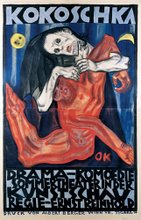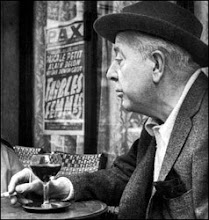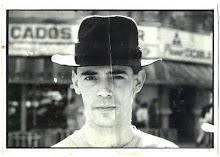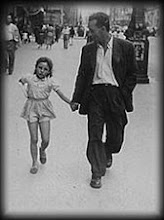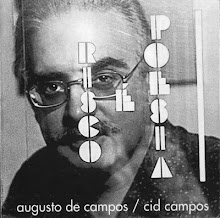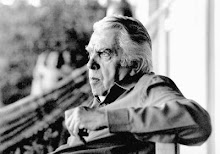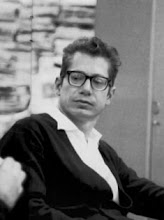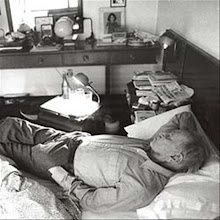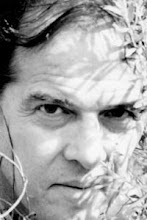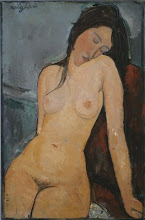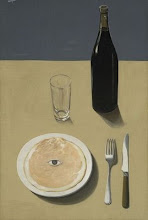Modern society has little need for mass industrial labour and conscript armies; instead, it needs to engage its members in their capacity as consumers. The way present day society shapes its members is dictated first and foremost by duty to play the role of the consumer. The norm our society holds up to its members is that of the ability and willingness to play it.
The consumer of a consumer society is a sharply different creature from consumers in any other societies thus far. If the philosophers, poets among our ancestors pondered the question whether one works in order to live or lives in order to work, the dilemma one hear mulled over most often nowadays is whether one needs to consume in order to live or whether one lives so that one can consume. That is, if we are still able, and feel the need to, tell apart the living from the consuming.
Ideally, nothing should be embraced by a consumer firmly, nothing should command a commitment till death do us part, no needs should be seen as fully satisfied, no desires considered ultimate.
That all consumption takes time is in fact the baen of consumer society - and a major worry for the merchandisers of consumer goods. There is a natural resonance between the spectacular career of the now, brough about by time-compressing technology, and the logic of consumer-oriented economy. As far as the latter goes, the consumer's satisfaction ought to be instant: and this is a double sense. Obviously, consumed goods should satisfy imediately, requiring no learning of skills and no lengthy groundwork; but the satisfaction should also end - in no time, that is in the moment the time needed for their consumption is up. And that time ought to be reduced to the bare minimum.
The needed time-reduction is best achieved if consumers cannot hold their attention or focus their desire on any object for long; if they are impatient, impetuous and restive, and above all easily excitable and equally easily losing interest. The culture of consumer society is mostly about forgetting, not learning. When the waiting is taken out of wanting and the wanting out of waiting, the consumption capacity of consumers may be stretched far beyond the limits set by any natural or acquired needs; also, the physcal endurability of the objects of desire is no longer required. The traditional relationship between needs and their satisfaction is reversed: the promise and hope satisfaction precedes the need promised to be satisfied and will be always more intense and alluring than the extant needs.
A good consumer is a fun-loving adventurer. For good consumers it is not the satisfaction of the needs one is tormented by, but the torments of desires never yet sensed or suspected that makes the promise so tempting.
For the consumers in the society of consumers, being on the move - searching, looking for, not-finding-it or more exactly not-finding-it-yet is not a malaise, but the promise of bliss; perhaps it is the bliss itself. Theirs is the kinf of travelling hopefully which makes arriving into a curse.
Consumers are first and foremost gatherers of sensations; they are collectors of thing only in a secondary and derivative sense.
The prospect of the desire fading off and dissipating, the prospect of being left with nothing in sight to ressurrect it or with a world with nothing in it to be desired, must be the most sinister of the ideal consumer's horrors.
To increase their capacity for consumption, consumers must never be allowed to rest. They need to be kept forever awake and on the alert, constantly exposed to new temptations and so remain in a state of a never wilting excitation - and also, indeed, a state of perpetual suspicion adn steady disaffection. The baits commanding them to shift attention need to confirm the suspicion while promising the way out of disaffection: You reckon'd you seen it all? You ain't seen nothin yet!
It is ofen said that the consumer market seduces its customers. But in order to do so it needs customers who want to be seduced (just as to command his labourers, the factory boss needed a crew with the habits of discipline and command-following firmly entrenched). In a properly working consumer society consumers seek actively to be seduced. Their grandfathers, the producers, lived from one turn of the conveyor belt to an identical next. They themselves, for a change, live from attraction to attraction, from temptaton to temptation, from sniffing out one tidbit to searching for another, from swallowing one bait to fishing arpund for another - each attraction, temptation, tidbit and bait being new, different and more attention-catching than its predecessor.

![[...]](https://blogger.googleusercontent.com/img/b/R29vZ2xl/AVvXsEjeNC2Kyxd34r2LuofHe9-vdXHeHwG3_2NhVmIOTlK2moU0Q4R7taMlS8iMmQgEl1-NdaRsPrLdREzfQZYKfUgjslwLZUZe67dAfFBREu-YRx6WGX-vAUt5eJT4_-lFwT4dGzGCQQ/s220/11798115_858304687558226_1857652538_n.jpg)
